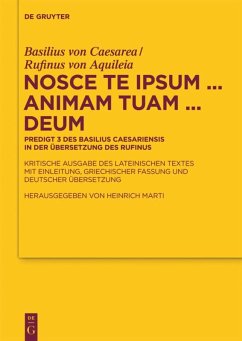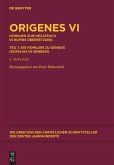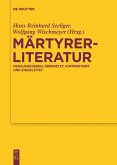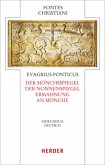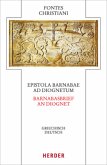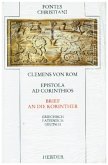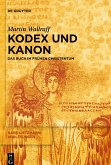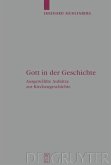This publication provides the first comparison and commentary on two critical editions of the same sermon. Few texts have been preservedboth in the original language and in the language of the target audience. The third sermon of Basil is completely accessible in both versions as the homilia secunda Basilii of Rufinus.
Just how reliable the Latin translators are is of great importance for both theology and philosophy. For example, did Rufinus of Aquileia translate precisely, or interpret freely? In the past theology and philosophy have not contributed significantly to understanding such translations. There has been a lack of critical analyses of texts and literary studies, a gap that is filled by this commentary.
Für die Analyse des spätantiken Geisteslebens, das durch den Zusammenbruch der Reichsstruktur und den Siegeszug des Christentums bestimmt ist, wird es wichtig, die Gedankengänge der griechischen Kirchenväter (etwa des Basileios) auch mit Hilfe lateinischer Übersetzungen teils zu rekonstruieren (Origenes), teils neu zu interpretieren (Kappadokier). Nur wenige Texte sind sowohl in der Quellsprache als auch in einer Zielsprache erhalten und kritisch ediert. Die dritte Homilie von Basileios ist aber als Rufins homilia secunda Basilii in beiden Fassungen vollständig zugänglich.
Für Theologie wie Philologie ist entscheidend, wie die lateinischen Übersetzer zu beurteilen sind: Muss etwa Rufin von Aquileia als treuer Übersetzer oder als relativ freier Bearbeiter gewürdigt werden? Verschiebt sich die Trinitätstheologie beim Übertragungsprozess in den Westen?
Zum Verständnis solcher Übersetzungsliteratur haben Theologie und Philologie bisher wenig beigetragen. Es fehlen vor allemtextkritische und literarische Untersuchungen. In diese Lücke tritt der vorliegende Kommentar.
Just how reliable the Latin translators are is of great importance for both theology and philosophy. For example, did Rufinus of Aquileia translate precisely, or interpret freely? In the past theology and philosophy have not contributed significantly to understanding such translations. There has been a lack of critical analyses of texts and literary studies, a gap that is filled by this commentary.
Für die Analyse des spätantiken Geisteslebens, das durch den Zusammenbruch der Reichsstruktur und den Siegeszug des Christentums bestimmt ist, wird es wichtig, die Gedankengänge der griechischen Kirchenväter (etwa des Basileios) auch mit Hilfe lateinischer Übersetzungen teils zu rekonstruieren (Origenes), teils neu zu interpretieren (Kappadokier). Nur wenige Texte sind sowohl in der Quellsprache als auch in einer Zielsprache erhalten und kritisch ediert. Die dritte Homilie von Basileios ist aber als Rufins homilia secunda Basilii in beiden Fassungen vollständig zugänglich.
Für Theologie wie Philologie ist entscheidend, wie die lateinischen Übersetzer zu beurteilen sind: Muss etwa Rufin von Aquileia als treuer Übersetzer oder als relativ freier Bearbeiter gewürdigt werden? Verschiebt sich die Trinitätstheologie beim Übertragungsprozess in den Westen?
Zum Verständnis solcher Übersetzungsliteratur haben Theologie und Philologie bisher wenig beigetragen. Es fehlen vor allemtextkritische und literarische Untersuchungen. In diese Lücke tritt der vorliegende Kommentar.

